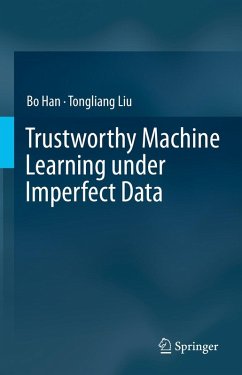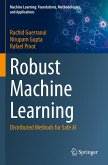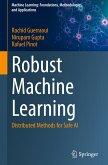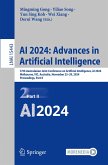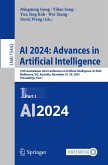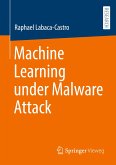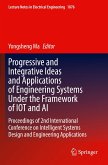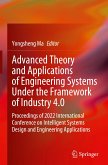The subject of this book centres around trustworthy machine learning under imperfect data. It is primarily designed for scientists, researchers, practitioners, professionals, postgraduates and undergraduates in the field of machine learning and artificial intelligence. The book focuses on trustworthy deep learning under various types of imperfect data, including noisy labels, adversarial examples, and out-of-distribution data. It covers trustworthy machine learning algorithms, theories, and systems.
The main goal of the book is to provide students and researchers in academia with an unbiased and comprehensive literature review. More importantly, it aims to stimulate insightful discussions about the future of trustworthy machine learning. By engaging the audience in more in-depth conversations, the book intends to spark ideas for addressing core problems in this topic. For example, it will explore how to build up benchmark datasets in noisy-supervised learning, how to tackle the emerging adversarial learning, and how to tackle out-of-distribution detection.
For practitioners in the industry, this book will present state-of-the-art trustworthy machine learning methods to help them solve real-world problems in different scenarios, such as online recommendation and web search. While the book will introduce the basics of knowledge required, readers will benefit from having some familiarity with linear algebra, probability, machine learning, and artificial intelligence. The emphasis will be on conveying the intuition behind all formal concepts, theories, and methodologies, ensuring the book remains self-contained at a high level.
The main goal of the book is to provide students and researchers in academia with an unbiased and comprehensive literature review. More importantly, it aims to stimulate insightful discussions about the future of trustworthy machine learning. By engaging the audience in more in-depth conversations, the book intends to spark ideas for addressing core problems in this topic. For example, it will explore how to build up benchmark datasets in noisy-supervised learning, how to tackle the emerging adversarial learning, and how to tackle out-of-distribution detection.
For practitioners in the industry, this book will present state-of-the-art trustworthy machine learning methods to help them solve real-world problems in different scenarios, such as online recommendation and web search. While the book will introduce the basics of knowledge required, readers will benefit from having some familiarity with linear algebra, probability, machine learning, and artificial intelligence. The emphasis will be on conveying the intuition behind all formal concepts, theories, and methodologies, ensuring the book remains self-contained at a high level.

